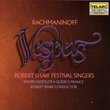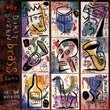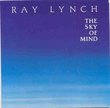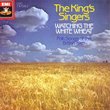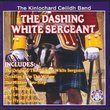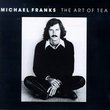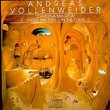| All Artists: Various Artists Title: World Trade Center Members Wishing: 0 Total Copies: 1 Label: Sony Original Release Date: 1/1/2006 Re-Release Date: 8/8/2006 Album Type: Soundtrack Genres: Pop, Soundtracks Style: Number of Discs: 1 SwapaCD Credits: 1 UPCs: 828768805725, 0828768805725 |
Search - Various Artists :: World Trade Center
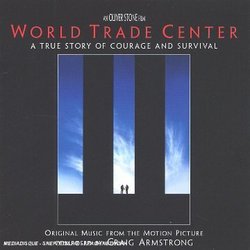 | Various Artists World Trade Center Genres: Pop, Soundtracks
Composer Craig Armstrong has done arrangements for a variety of pop acts while building a reputation for both his own stand-alone neoclassical pieces and scores for the stage and film. Calling on him for this tricky assign... more » ![header=[] body=[This CD is available to be requested as disc only.]](/images/attributes/disc.png?v=15401716) ![header=[] body=[This CD is available to be requested with the disc and back insert.]](/images/attributes/disc_back.png?v=15401716) ![header=[] body=[This CD is available to be requested with the disc and front insert.]](/images/attributes/disc_front.png?v=15401716) ![header=[] body=[This CD is available to be requested with the disc, front and back inserts.]](/images/attributes/disc_front_back.png?v=15401716) |
Larger Image |
CD DetailsSynopsis
Amazon.com Composer Craig Armstrong has done arrangements for a variety of pop acts while building a reputation for both his own stand-alone neoclassical pieces and scores for the stage and film. Calling on him for this tricky assignment was a good move: Armstrong is a subtle musician who prefers understatement to grand gestures, and he's set a tone that's opposite the usual Hollywood symphonic grandstanding (typically, a cue is titled "Ethereal"). Avoiding pulling at the listener's heartstrings in too obvious a manner, the string-heavy score is minimally somber, declining its theme mostly with cello and piano. (The downside is that it can be difficult to differentiate the tracks, which tend to meld into one another after a while.) You're not going to whistle along to this CD--but neither would you want to. --Elisabeth Vincentelli Similarly Requested CDs
|
CD ReviewsMixed Bag Phil | San Jose, CA | 08/10/2006 (3 out of 5 stars) "This is an independent review of the soundtrack, not the film or sociopolitical dynamics surrounding the release of it. I haven't seen the film yet, so this is truly an unbiased review of the score on its own merits. I am, however, conscious of the subject matter of the film. Note that the gorgeous and emotive score used in the trailer released earlier this summer is NOT on the soundtrack; my biggest disappointment! Hollywood commonly releases early trailers with one score and then releases the film with and updated score (as with this film) or completely different score. 1. World Trade Center Cello Theme (3:43) - The cello is not constant throughout but performs intermittent pieces more like a vocalist with lyrics. The choral accompaniment, about halfway though, gives foreshadowing of the superior Choral Piece (track 6). 2. World Trade Center Piano Theme (4:01) - For those looking for music from the trailer, this is the piano piece from the first 30 seconds or so. About a minute into this track the score turns highly over-produced, with clamp-thump percussion, rapid clinking sounds, cymbals, synth, and anything else they could muddle in the mix. The beautiful simplicity of the original structure is punctured by some Hollywood editor who clearly didn't understand the beauty of simplicity in dramatic scores. Fortunately, from 2:40 on, it finishes as a nice piano suite. 3. New York Awakes (2:30) - Starts out with nice blend of piano, synth, and orchestra with a slight sense of foreboding. This builds until the last few seconds of tastefully limited percussion and slight up-tempo shift. 4. The Drive Downtown (3:52) - A well done piece that builds appropriately as one draws closer to the end (and I presume closer to the towers in the film). Hans Zimmer fans will do a double take on this one, as several crescendos mimic his influences. I cannot express how much I was hoping this was the "drive downtown" theme from the early theatrical trailer releases. 5. Rise Above The Towers (2:26) - Composer Craig Armstrong took a morning off to let Hans Zimmer write the intro to this track, I'm positive of this. OK, just kidding, but it doesn't start sounding like the rest of the score until a minute into it. And "sounding like" is a good way to put it because, title aside, there's little inspiring about this track. The next track could easily have been merged with it - and probably should have. 6. World Trade Center Choral Piece (2:41) Arguably the best track on the release. The haunting solos by soprano Susan Stevens Logan have vague hints of Howard Shore's closing moments of "The Bridge of Khazad Dum" (Lord of the Rings: Fellowship of the Ring). This is the only track that I know I'll add to my rotation of current favorite scores. 7. John & Donna Talk About Their Family (1:25) - Starting almost as a reprise of the Piano Suite, the tract turns to a slowly played guitar-piano score (akin to something from Windham Hill, e.g., George Winston) 8. Ethereal (5:25) - I was completely unimpressed with this flat track. I was slightly glad it was over when it was. That feeling didn't change in subsequent listening. 9. John's Woodshed (1:39) The first minute of this track is almost indistinguishable from the Piano Theme. In fact, if you didn't see "Track:9" displayed on your CD player or iPod, you'd swear you were listening to track 2. It's just a brief reprise. 10. Marine Arrives At Ground Zero (2:57) - Echoed mechanical sounds mixed with natural sounds (cello, then violin) appropriately start this track to musically communicate the sense of arriving at the ground zero aftermath. The track successfully sustains a sense of emptiness and loss, changing only slightly throughout. 11. Will And Allison In The Hospital () - 12. Allison At The Stoplight (1:08) - Another brief reprise of the Piano Theme, just with different string accompaniment. 13. Jimeno Sees Jesus (1:43) Guitar and choral sounds open try to communicate spirituality and peace. It only sort of works. The sampled vocals don't add to the spiritual dimension at all. It leaves me with an "Is that it?" sense. 14. John And Will Found/Will Ascends (5:05) - Again, another Piano Theme reprise with different string accompaniment, this time with deep synth thrown in. Sounds a lot like everything else on the score until 2:46 when the same over-produced "ta-ta-ting, clack clack" add-ins from the Piano Theme get laid over the score for about 15 seconds. Fortunately for the listener, the track finishes more cleanly. 15. John's Apparition (2:31) - Not haunting like the Choral suite (track 6), this string piece has a little dark suspense woven into it. A door-knocking sound appears toward the end for unknown reason. 16. John Rescued/Resolution (7:47) - Yet another Piano Theme reprise for the first minute, then the same percussive add-ins. This remedies itself after about 3 minutes as the song cycles through bits and pieces of several of the previous tracks. Very briefly your treated to that "angelic vocals" effect (a la James Horner's Titanic Suite) by soprano soloist Catherine O'Halloran 17. Elegy (4:39) - This is a reprise of the string-only parts of the previous tracks. The movements are nice and varied to keep you in it for the 4:39 duration. After finishing, one could be forgiven for thinking, "Oh, so that's what this would have sounded like if Hollywood had left it alone!" 18. Ethereal Piano Coda (2:09) - In spite of its title, this not (thankfully) another Piano Theme reprise. The solitude of a solo grand piano gently playing out a melancholy requiem finishes the score with the sense of sorrowful recollection many of us associate with the events of September 11. After that review, you might be surprised at my 3-of-5 star rating. Don't be. At only 57 minutes, this release has much repetition, few inspiring moments -- which, given the subject matter, you'd hope for loads of them -- and is riddled with obvious "Hollywood-eqse" mix-ins at all the worst spots. You get nice score until suddenly it's like someone tried to blend the theme from "ER" (or one of those prime time TV medical dramas) into Armstrong's original work. Listen to the early release of the score on the early (July 2006) theatrical trailer and you'll hear what this score could have been. When I heard the score on the TV trailer, my heart sank as I heard what Hollywood post-production editing did to it. My only hope here is that Sony will release a second soundtrack with better material, but they normally only do this with big hits like the first Matrix movie, Titanic, etc. Bottom Line: If you enjoyed the movie and want to relive it through the soundtrack then you'll probably enjoy this release. Otherwise, as a score, this will add little to your collection." Elegy For A Dark Day In American History Erik North | San Gabriel, CA USA | 08/22/2006 (5 out of 5 stars) "Although I am one to like big symphonic Hollywood film scores (such legends as John Williams and Jerry Goldsmith come to mind), I also recognize the equal value of more subtler scores, scores that are not in-your-face. It is certainly true with Craig Armstrong's beautiful score for director Oliver Stone's 9/11 epic WORLD TRADE CENTER. Like John Powell's score for Paul Greengrass' UNITED 93 released earlier in 2006, Armstrong's score for WORLD TRADE CENTER is an atmospheric piece, setting itself as an elegy for the horrors that were unleashed on September 11, 2001. The primary instrumentation of the score is piano, cello, and full string orchestra, ornamented by several elements of synthesizers and percussion, and the end result is excellence. It veers back between the physical pain felt by Port Authority officers John McLoughlin (Nicolas Cage) and William Jimeno (Michael Pena) as they are buried beneath the rubble of the World Trade Center, and the psychological pain felt by their wives (Maggie Gyllenhal; Maria Bello); and though obviously moving, it is never overly manipulative. Like the movie to which it belongs, this is a music score that will hopefully become part of the American musical landscape in the future, particularly as the fifth anniversary of one of the darkest days in American history approaches. It is an elegy for the survivors, and a poignant requiem for those who did not make it out." GREAT, GREAT SCORE! HardyBoy64 | Rexburg, ID United States | 03/21/2008 (5 out of 5 stars) "What I find amazing about this score is the beautiful and subtle strength of the themes. It's one of my new favorite scores! Another great Armstrong score is Elizabeth: The Golden Age."
|

 Track Listings (18) - Disc #1
Track Listings (18) - Disc #1